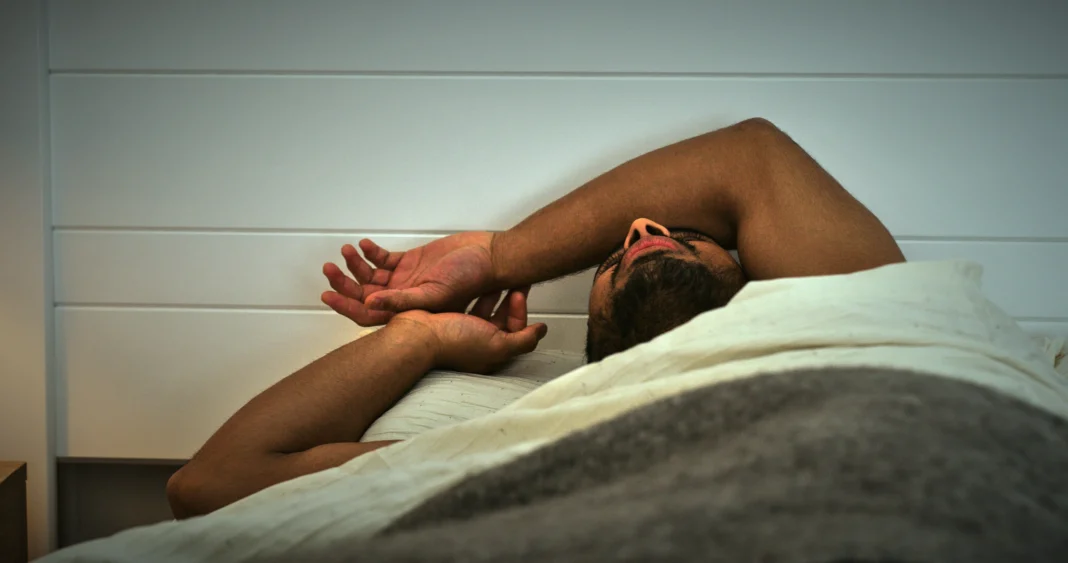If you’ve been putting off fixing your sleep habits, this might be the perfect wake-up call you need. While we all know that getting enough quality sleep is vital for our overall health and well-being, recent research has shown that a few bad nights of sleep can make us feel much older than we actually are. Yes, you read that right – just a couple of nights of poor sleep can make us feel years beyond our actual age. So, if you want to feel younger and more energetic, it’s time to take your sleep seriously.
The study, conducted by Stockholm University and published in the journal Proceedings of the Royal Society B, has revealed that our sleep patterns have a significant impact on how old we feel. In simpler terms, if you consistently get a good night’s sleep, you’re likely to feel much younger and more vibrant than your actual age. This means that your sleep habits have a crucial role in determining your subjective age – a term used to describe how old we feel.
According to Leonie Balter, a psychoneuroimmunologist at the Karolinska Institute in Sweden and a co-author of the study, “Sleep has a major impact on how old you feel, and it’s not only your long-term sleep patterns. Even when you only sleep less for two nights, that has a real impact on how you feel.” This is not just a matter of feeling a little groggy and slow in the morning. Our subjective age can have a significant impact on our overall health and lifespan. Feeling older than we are can lead to sleepiness during the day and cause us to make unhealthy food choices.
While the study also acknowledges that more research needs to be done on how our sleep patterns affect us over a more extended period, it still highlights the essential role of good sleep hygiene. This means that it’s crucial to develop healthy sleep habits and stick to them for feeling younger both mentally and physically. So, let’s take a look at some simple ways to improve our sleep hygiene and feel more youthful.
1. Set a consistent sleep schedule
One of the first steps to improving your sleep hygiene is to set a regular sleep schedule. Train your body to follow a consistent sleep routine by going to bed and waking up at the same time every day, even on weekends. This will help regulate your body’s internal clock and improve the quality of your sleep.
2. Create a relaxing bedtime routine
Having a relaxing bedtime routine can help you wind down and prepare your mind and body for sleep. This could include taking a warm bath, practicing meditation or deep breathing exercises, or simply reading a book. Find a routine that works for you and stick to it.
3. Keep your bedroom cool and comfortable
The temperature of your bedroom plays a significant role in the quality of your sleep. Experts recommend keeping your bedroom temperature between 60-67 degrees Fahrenheit for optimal sleep. Additionally, invest in comfortable bedding and pillows to create a cozy sleep environment.
4. Dim the lights in your home at night
Our body’s natural sleep hormone melatonin is produced in response to darkness. By dimming the lights in your home as it gets dark outside, you can signal to your body that it’s time to sleep. This will help you fall asleep faster and improve the quality of your sleep.
5. Avoid screens and electronics before bed
The blue light emitted from electronic devices disrupts our body’s production of melatonin, making it harder for us to fall asleep. To improve your sleep, switch off your phone and other devices at least an hour before bedtime.
6. Watch what you eat and drink before bedtime
What we eat and drink can significantly impact the quality of our sleep. Avoid consuming caffeine, alcohol, and sleep-disrupting foods like citrus fruits, spicy, fatty, or fried food before bedtime. Instead, opt for a light snack like a banana or a cup of chamomile tea.
7. Exercise regularly
Regular exercise is not only essential for our physical health, but it also has a positive impact on our sleep. Getting at least 30 minutes of physical activity each day can help you fall asleep faster and improve the overall quality of your sleep.
8. Use your bed for sleep and sex only
Your bed should be associated with rest and relaxation. Avoid using it for work, watching TV, or scrolling through your phone. By using your bed only for sleep and sex, you can train your brain to associate it with rest and



